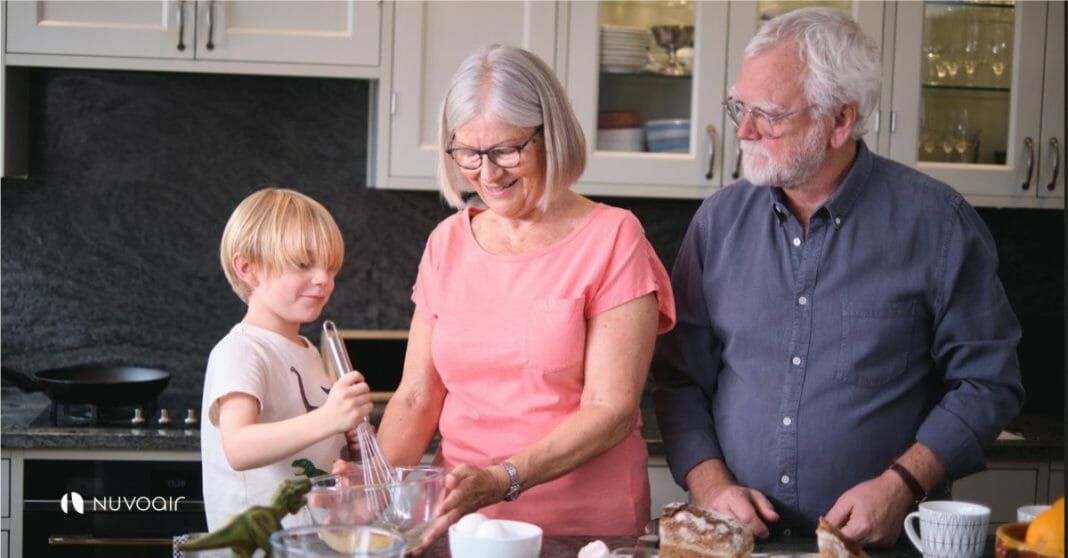NuvoAir, a digital health company focused on complex patients, initially targeting respiratory conditions, has shared results of its U.S. chronic obstructive pulmonary disease (COPD) pilot. Initial data demonstrate the value of NuvoAir’s virtual-first clinical service to effectively engage patients, reduce hospitalizations, and improve quality of life.
Following its success with the National Health Services (NHS) in the United Kingdom, NuvoAir piloted this new solution in the U.S. market in an effort to better support the over 15 million people diagnosed with COPD. According to the American Lung Association, COPD is the 3rd disease-related cause of death in the U.S.; and it is costly to all those involved.
NuvoAir aims to address key challenges in COPD care by marrying technology and human touch, resulting in the delivery of continuous and proactive care. Data collected from home monitoring devices (including NuvoAir’s proprietary Air Next spirometer and Aos inhaler sensor) are connected to the NuvoAir Home app, empowering patients to follow their health trends. Applying leading guidelines to algorithms, NuvoAir’s clinical teams analyze results and tailor care for each patient.
The pilot, conducted from 2021-2022 with rural populations from a pulmonary clinic in Indiana and primary care clinic in Kentucky, demonstrated success in engagement and patient reported outcomes. Of patients surveyed, 80% reported fewer COPD-related hospitalizations after enrolling, 60% reported fewer exacerbations, and 87% reported improved quality of life. During the pilot, NuvoAir enrolled 74% and successfully onboarded 56% of the targeted population. On average, individuals completed a home SpO2 reading every 2 days to measure blood oxygen saturation levels, performed spirometry lung function tests every 9 days, and completed a symptom survey every 15 days, indicating strong patient engagement in the solution.
NuvoAir provides a virtual-first omni-channel clinical service experience for complex patients where COPD is the leading condition. The solution includes both clinical stratification by risk and exacerbation history as well as engagement stratification by technical capability, ensuring that even the most complex individuals without smartphones can benefit from the solution. NuvoAir Care Coordinators coach COPD patients to use award-winning home monitoring technology and provide health education and early interventions, which help to keep patients out of the hospital. Patients are managed with proven clinical protocols tailored to their individual needs. When a red flag is detected (such as a biomarker, trend of biomarkers, self-report, or medication adherence issue), they are quickly evaluated by clinical team members.
“Through our solution we capture and assess ongoing data, see signals and identify trouble spots and intervene before the patient heads to an office visit or emergency room. Our solution seamlessly supports patients through their journey with COPD. Tailored personalization of care is at the heart of our solution, all delivered at scale,” said Michael Zagami, Chief Product Officer at NuvoAir.
A recent white paper outlines the numerous challenges in providing treatment and adequate patient support, which result in frequent severe—and often avoidable— exacerbations. The majority of costs are from hospitalizations due to exacerbations, driving projected healthcare costs for COPD patients in the U.S. to nearly $50 billion a year. People with COPD are also often managing comorbidities. In fact, in Medicare alone, 49% of patients with COPD have five or more other conditions.
“We are transforming the way the healthcare system better supports patients living with COPD. Our results in the U.S. validate what we have seen previously in the U.K. with thousands of patients with respiratory conditions,” shares NuvoAir’s Chief Medical Officer, Eric Harker, MD, MBA, MPH.



